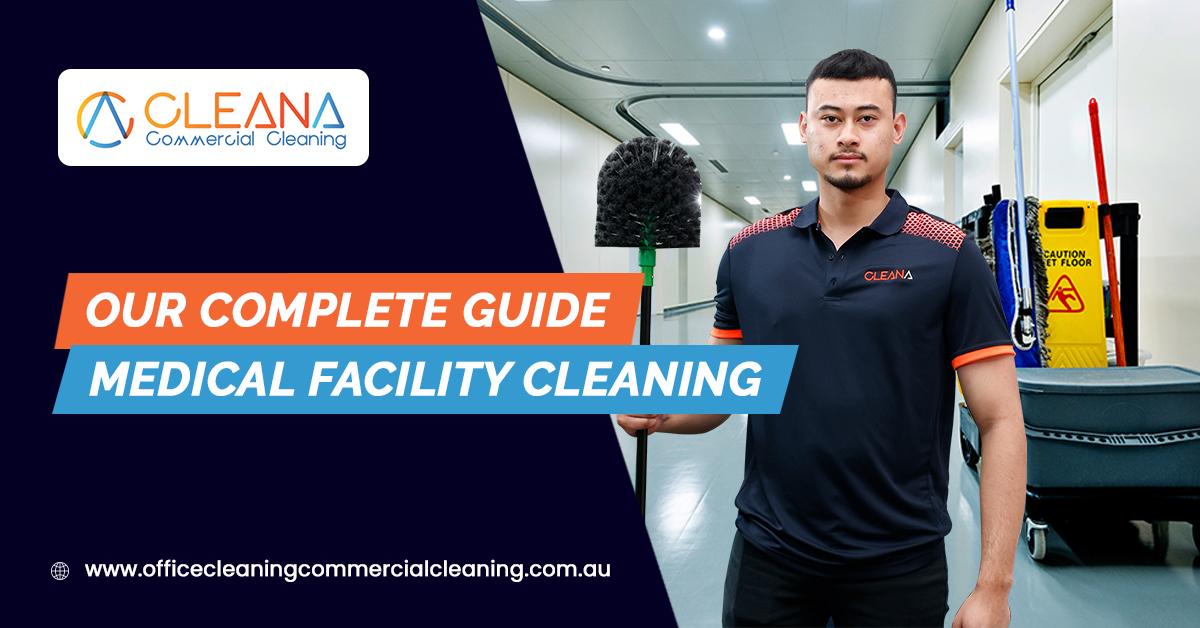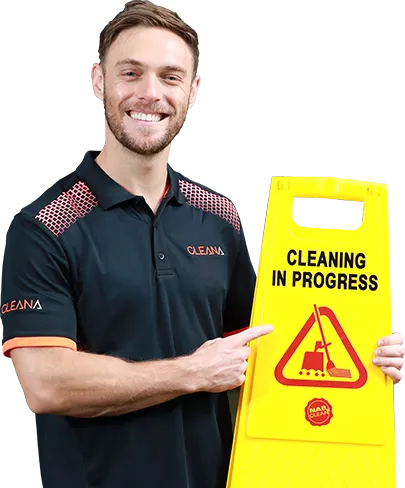If you’re in the health industry, you may already be familiar with the term Medical Facility Cleaning and how crucial it is. But if not, then this might be a murky area altogether. Not to worry, by the end of this guide, you should have a pretty good idea of what it’s all about.
Medical cleaning is different from your usual day-to-day hygiene both in terms of intensity and the protocol followed. So to get a clear picture of how it works, let’s begin with a simple introduction as we build up.
What is Medical Facility Cleaning
Outright, the name suggests that this kind of cleaning is specific to hospitals and medical centres. It involves removing the bio-load at the surface level, and this is simply a fancy name for dust, dirt, grime, and other contaminants. But it doesn’t just end there.
Hospitals need more stringent measures that extend to sterilization and disinfection. So when these two elements combine, the word Medical Facility Cleaning is birthed.
You may be thinking, “Isn’t cleaning and disinfecting the same?” The answer is no. And let’s prove it to you. Cleaning products contain a compound known as surfactant.
This, in water, reacts only to remove allergens and nothing more. Disinfecting, on the other hand, purposely kills germs and microbes.
The latter is so important because it’s possible to have a seemingly clean surface or environment packed with all kinds of bacteria and viruses.
When this is the case, hospitals turn into a breeding ground for cross-contamination, a disaster you want to avoid at all costs.
In fact, the government is so strict with this that it has a policy on health codes and environmental standards, and any loopholes can attract heavy fines or, worse yet, permit a shutting down of the facility.
All this goes to say cleaning reaches further than the day-to-day clean-up you may be used to. Legal rules surrounding it, the need for special tools, and even a special staff For Hospital Cleaning Services dedicated to the profession.
How is Medical Facility Cleaning Different From Normal Cleaning?
If you haven’t already picked up on it, the difference is vast. For starters, understand that Medical Facility Cleaning happens in a health centre with a high population of sick people, whereas normal cleaning attends to lower traffic areas, mostly with healthy persons.
What Implication Does This Have?
In the first case, you’re dealing with individuals whose immunity is already compromised, so the risk of HAI (hospital-acquired infection) is sky-high. Typically, this is not much of a concern in an office space with only a few employees with good medical histories.
So in a case where a bucket, broom, mop, and a few commercial cleaners suffice, the other would demand hospital-grade cleaning equipment. It takes special tools and solutions to cut through tough pathogens; therefore, the two scenarios cannot be on the same level.
Now, this doesn’t mean that commercial cleaning is less significant. For the safety of workers, you would occasionally have to disinfect shared items like office telephones or carpets.
And there are third-party companies that specialize in deep cleaning jobs; however, the cleaning frequency is not that pressing and neither are the methods identical.
Add on, medical centres have sensitive rooms like the ICU, ER, inpatient hospitals, and the like. These spaces encounter bodily fluids, saline, and other substances which can be dangerous if transferred from person to person.
Keep in mind there’s a lot of sharing here when it comes to beds, and garments so this in itself calls for thorough cleaning and disinfecting in that order whenever a patient is discharged.
Reusable patient care equipment must be sterilized too. Of course, items like syringes and rubber gloves are not on this list, but medical trays and drug cabinets are. Unless they are disposable, it’s always safer to cover all your bases.
Let’s talk about common-contact surfaces like restrooms, walls, door handles, and armchairs. Because these are high-traffic areas, it’s not enough to have them cleaned daily but go the extra mile sometimes up to twice, thrice a day.
Of course, this will vary with different institutions depending on the patient population, but other areas are generally demanding.
Another difference worth noting is in the structural organization. Usually, Hospital Facility Cleaning engages two key departments, namely the housekeeping team and the inspection control office.
While the housekeeping staff is out busy collecting trash, and soiled linen, the inspection control officer is the extra eye that ensures adherence to the standard health codes.
Needless to say, normal cleaning has no care for this cleaning service we offer. In some organizations, the employees themselves handle minor cleaning duties under no supervision whatsoever.
Why Do You Need Professionals for It?
No matter how skilled you think you are, Medical Facility Cleaning is no playground for rookies. Even with your in-house cleaning staff on standby, it may be a wise idea to outsource to professionals.
Here is why?
Medical Cleaning Services Pros Are Trained For the Job:
They know how to go about it from start to finish. And this is supplemented with adherence to government health regulations, so you can bet they will do a polished job.
They Likely Have a Cleaning Checklist:
A trained workforce ensures every inch in a room is attended to, with keener attention to susceptible rooms which require systematic, deep cleaning.
Hospital-Grade Disinfectants Can be Dangerous:
A little mishandling is all it takes to cause an accident. And considering how tough these solvents are, burns could come knocking.
Saves You Money and Time in the Long Run:
How much more would you spend if you decided to train your general cleaning staff from scratch? The hiring, HR process and purchasing of EPA- approved (Environmental Protection Authority) equipment are a dollar less in your account.
Every Medical Facility Is Different:
As standard as Medical Facility Cleaning is, each facility has different needs. A professional team can tailor their services to your specific wants and needs such that you get value for your money.
Allows You to Focus Better On Patient Care:
With medical cleaning out of the way, the senior board can channel their energy into advancing patient care and boosting hospital performance altogether.
What Else?
- Your clinic remains inspection-ready at all times.
- Greater client satisfaction points.
- Cleaning methods are up-to-date with the latest technology.
- The medical cleaning staff comes armed with PPE and other superior tools for the job.
In a healthcare environment, a lot is at stake when we talk of hygiene. The last thing you want is to cross-contaminate the various pathogens lingering around.
And a general cleaning staff is not sufficient because they are limited to the basic methods and appliances. So be wise and get your hands on an expert team that knows exactly how to maintain government-approved standards.

